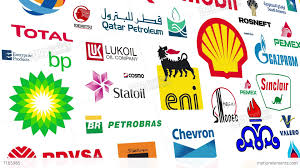![]()
If you’ve landed on this article page, you’re probably searching for a
good business idea—an idea that’s light on the pocket but heavy on
returns, promising both a fulfilling journey and potential profit.
|
To Start A Lucrative Petrochemicals Production Company in
Nigeria
Petrochemicals are chemical products derived from petroleum or
natural gas. They are organic compounds made up of hydrocarbons
and other chemicals, such as oxygen, nitrogen, sulfur, and
metals. The scientific name for petrochemicals is olefins or
alkenes. These compounds are used as raw materials in the
production of a wide range of products, including plastics,
synthetic rubber, detergents, solvents, and many others.
The petrochemical industry in Nigeria
is rapidly expanding, with increased investments and
developments in the sector. The Nigerian petrochemical industry
has the potential to generate significant revenue for the
country and create employment opportunities for the local
population
There are different types of Petrochemicals Production Company
businesses which include:
Olefins Plants: These plants produce chemicals such as ethylene,
propylene, and butadiene which are used in the production of
various products like plastics, fibers, and rubber.
Aromatics Plants: These plants produce chemicals such as
benzene, toluene, and xylene which are used in the production of
various products like solvents, resins, and plastics.
Methanol Plants: These plants produce methanol which is used as
a feedstock for the production of formaldehyde, acetic acid, and
various other chemicals.
Fertilizer Plants: These plants produce various fertilizers such
as urea, ammonia, and phosphates which are used in agriculture.
Refineries: Refineries produce various petrochemicals like
gasoline, diesel, and kerosene which are used as fuels for
transportation and various industrial applications.
Polymer or Plastics Plants: These plants produce various types
of plastics such as polyethylene, polypropylene, and PVC which
are used in various applications like packaging, construction,
and automotive industries.
Surfactant production company: This business produces
surfactants which are used in the production of detergents,
personal care products, and other industrial applications.
Resin production company: This business produces resins such as
epoxy, polyester, and phenolic which are used in various
applications including coatings, adhesives, and composites.
Types Or Methods Of Petrochemicals Production In Nigeria and
Africa
Petrochemicals are produced through various methods in Nigeria,
including the following:
Steam Cracking: This is the most common method for producing
petrochemicals, which involves heating hydrocarbons, such as
naphtha, ethane, and propane, in the presence of steam to break
them down into smaller molecules.
Catalytic Cracking: In this process, a catalyst is used to break
down larger hydrocarbon molecules into smaller ones, such as
olefins.
Aromatics Extraction: This process is used to extract aromatic
hydrocarbons, such as benzene, toluene, and xylene, from the
naphtha stream.
Alkylation: This process is used to combine olefins with
isoparaffins to produce high-octane gasoline and other
chemicals.
Polymerization: This process is used to link together small
molecules, such as ethylene, propylene, and styrene, to form
long chains, which are then used to produce plastics and other
materials.
Site Selection: Select a suitable location for the production
facility, taking into account factors such as proximity to raw
materials and transportation infrastructure.
Procure Equipment and Raw Materials: Purchase or lease equipment
and procure raw materials necessary for the production process.
Build and Commission the Plant: Build and commission the
production plant in accordance with regulatory and safety
standards.
Hire Staff: Recruit and hire qualified staff to manage and
operate the production facility.
Start Production: Commence production according to the
production plan and market the products to potential customers.
How To Process and Package Petrochemicals In Nigeria or Africa
Processing and packaging of petrochemicals require careful
planning and execution to ensure that the end products meet the
required specifications.
Petrochemical feedstock selection: The selection of feedstock is
a crucial step in petrochemical processing. The feedstock should
be selected based on its availability, price, and suitability
for the intended product.
Feedstock pretreatment: Pretreatment involves the removal of
impurities from the feedstock. The pretreatment process may
include distillation, filtration, and chemical treatment.
Cracking: The feedstock is subjected to high temperatures and
pressure in the presence of a catalyst to break down the large
molecules into smaller ones.
Separation: The products of the cracking process are separated
based on their boiling points using distillation towers.
Polymerization: The separated products are further processed
using polymerization techniques to create the desired
petrochemical products.
Quality control: The final product must be tested to ensure that
it meets the required specifications.
Packaging: Once the product has been tested and approved, it is
packaged in suitable containers for distribution.
It is important to follow all the necessary safety procedures
during the processing and packaging of petrochemicals to prevent
accidents and protect the environment.
Target Market For The Petrochemicals Production Company Business
In Nigeria or Africa
Plastics Manufacturers: Petrochemicals are the primary raw
materials used in plastics manufacturing, making this industry a
major customer for Petrochemicals Production Companies in
Nigeria and Africa.
Pharmaceutical Industry: Petrochemicals are used as raw
materials in the production of various pharmaceutical products.
Petrochemicals Production Companies can target the
pharmaceutical industry for potential customers.
Agrochemicals Industry: Petrochemicals are also used in the
production of agrochemicals such as fertilizers and pesticides.
Petrochemicals Production Companies can target this industry for
potential customers.
Textile Industry: Petrochemicals are used in the production of
synthetic fibers, which are widely used in the textile industry.
Petrochemicals Production Companies can target the textile
industry as a potential customer.
Packaging Industry: Petrochemicals are used in the production of
various packaging materials such as bottles, bags, and
containers. Petrochemicals Production Companies can target the
packaging industry for potential customers.
Adhesives and Sealants Industry: Petrochemicals are used in the
production of adhesives and sealants. Petrochemicals Production
Companies can target this industry for potential customers.
Rubber Industry: Petrochemicals are used in the production of
synthetic rubber, which is widely used in various industries.
Petrochemicals Production Companies can target the rubber
industry as a potential customer.
Automotive Industry: Petrochemicals are used in the production
of various automotive products such as tires, hoses, and belts.
Petrochemicals Production Companies can target the automotive
industry for potential customers.
Construction Industry: Petrochemicals are used in the production
of various construction materials such as PVC pipes and
insulation materials. Petrochemicals Production Companies can
target the construction industry as a potential customer.
Get our training package, this guide reveals key insights on profitability in setting up your own lucrative Petrochemical Business, you will learn the step-by-step guide to starting your Petrochemical Business, and tips on how to succeed. Also, you will learn the best way to market and profit from the Petrochemical Business. Most especially, you will learn the exact costs of the materials and equipment you need for your Petrochemical Business. The body of this work is formed from consulting experienced and relevant people running the Petrochemical Business to get first-hand information about the success secrets and marketing strategies deployed to achieve business success.
|







